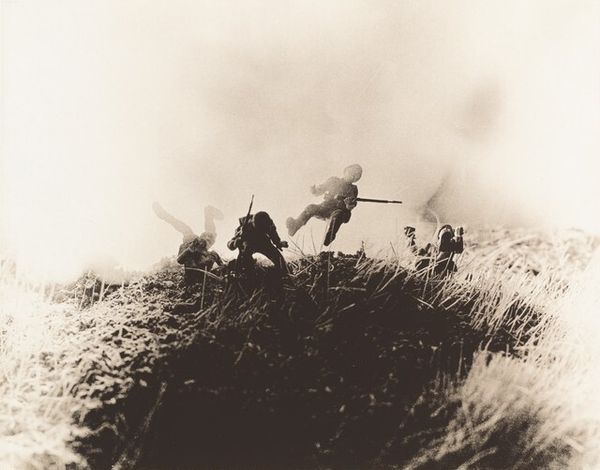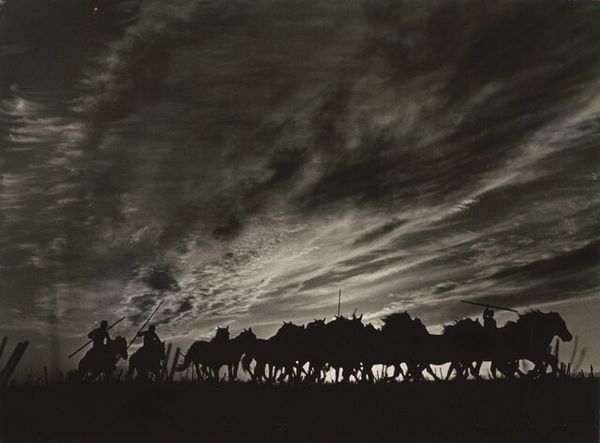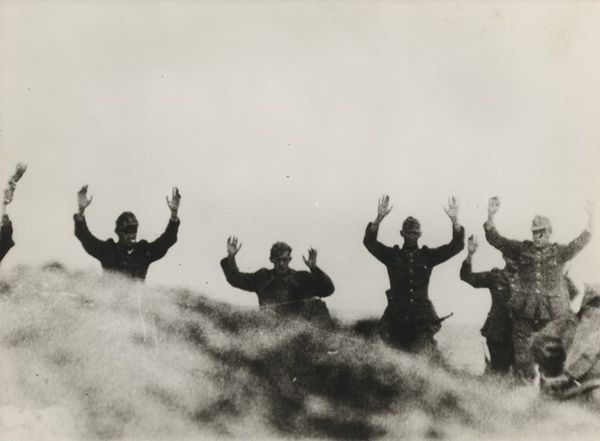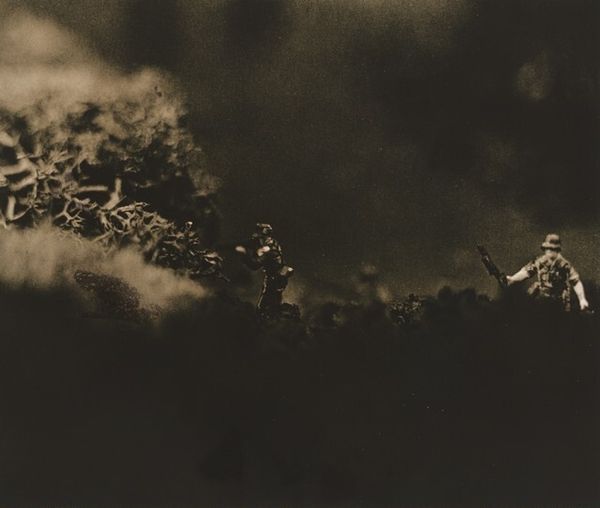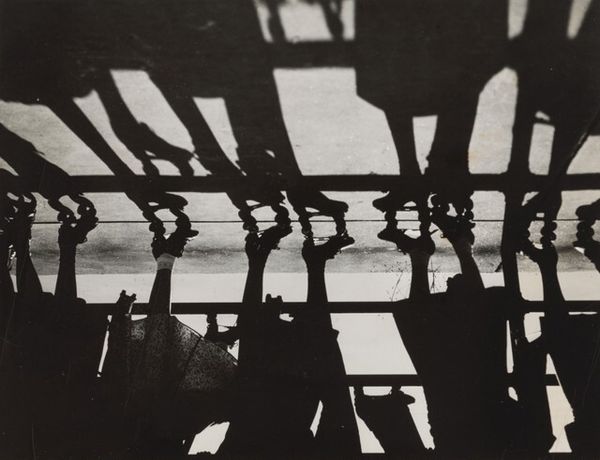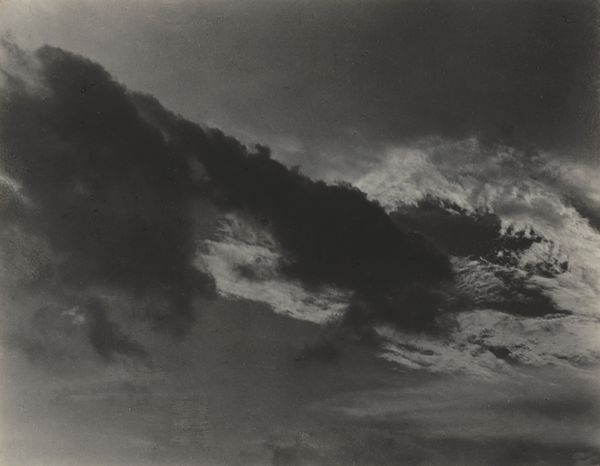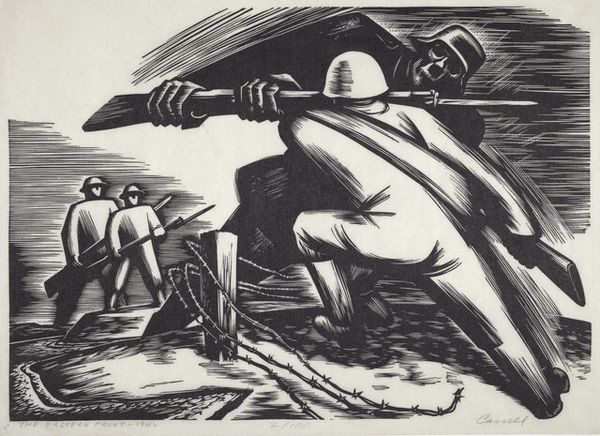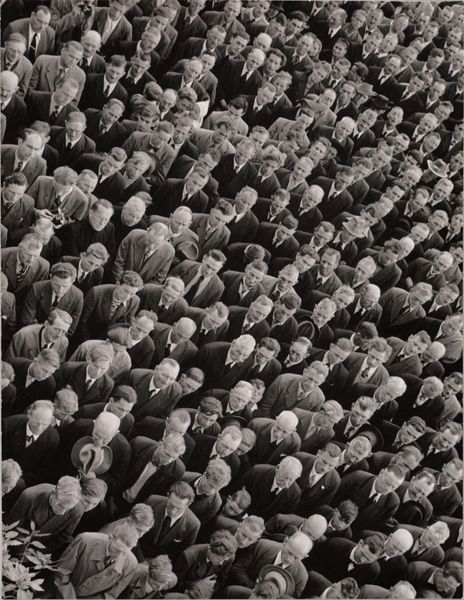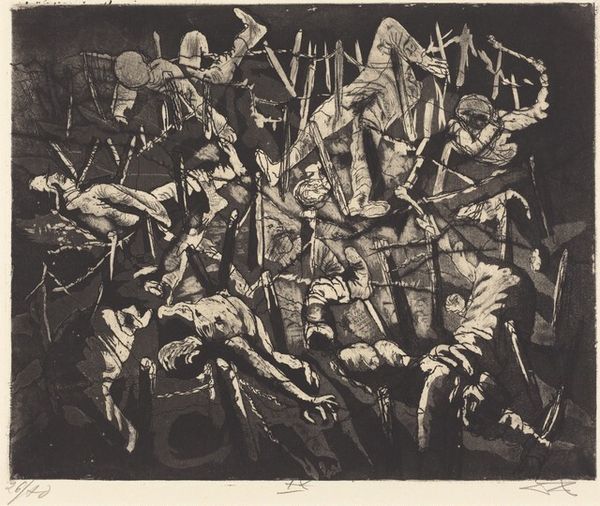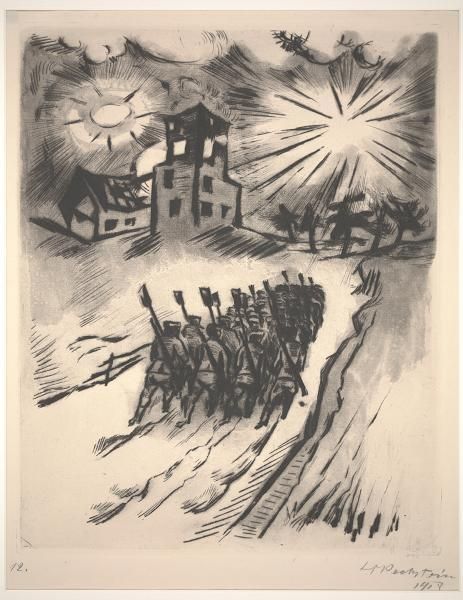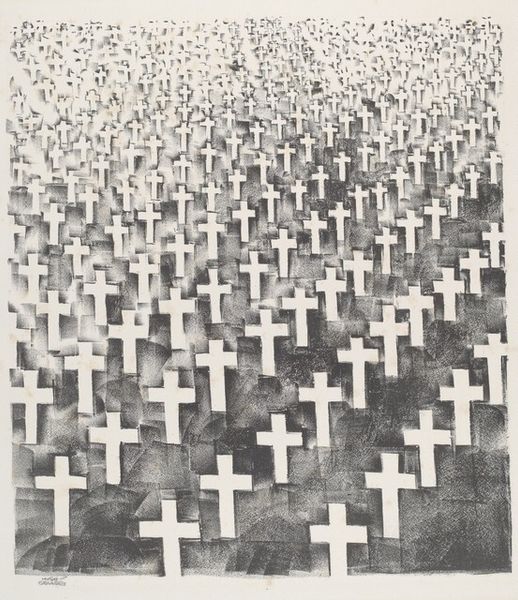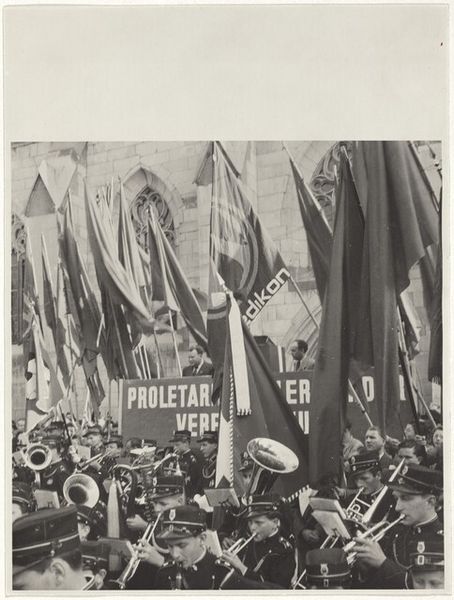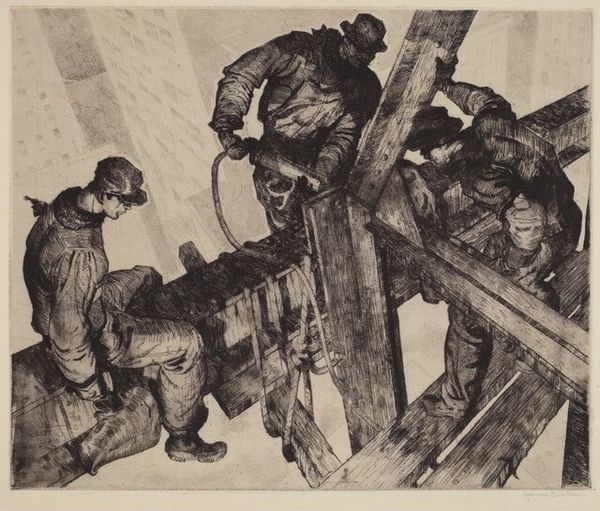
photography, gelatin-silver-print
#
portrait
#
soviet-nonconformist-art
#
social-realism
#
photography
#
gelatin-silver-print
#
monochrome photography
#
genre-painting
#
realism
#
monochrome
Dimensions: overall: 20 x 29.8 cm (7 7/8 x 11 3/4 in.)
Copyright: National Gallery of Art: CC0 1.0
Editor: This is Georgy Petrusov’s "Soldiers," a gelatin silver print from around 1937. There's this overwhelming feeling of faceless conformity it evokes; what do you see in this piece? Curator: The almost complete abstraction of these figures speaks volumes, doesn't it? Consider the context: 1937, height of Stalinism. What does it mean to depict soldiers, the very symbol of the Soviet Union's strength, as blurred, indistinguishable masses? Is it a critique? Editor: Maybe. It definitely deviates from idealized Socialist Realism, doesn't it? Aren’t soldiers usually represented heroically? Curator: Precisely. So, let’s delve into that deviation. Does this blurriness serve as a commentary on the individual's place within a totalitarian regime? Does it connect to contemporary debates about power, anonymity, and state control? We must explore the relationship between artistic expression and political constraints in this era. Editor: So you think the anonymity suggests a loss of individuality under political pressure? Curator: Absolutely. Look at the formal choices. The low angle, the oppressive sky, the lack of distinguishing features—they contribute to a narrative far removed from the state-approved heroism. It whispers of the dehumanizing potential of authoritarian power. Editor: That's fascinating. I hadn’t considered the composition as a commentary on power dynamics in that specific historical context. I guess I initially just saw it as technically interesting photography. Curator: That's the power of art, isn't it? It allows multiple interpretations. Hopefully, this inspires you to continue to question not just *what* you see, but *why* it's been presented that way. Editor: Definitely. I'll be thinking about the sociopolitical context of art a lot more now. Thanks!
Comments
No comments
Be the first to comment and join the conversation on the ultimate creative platform.
